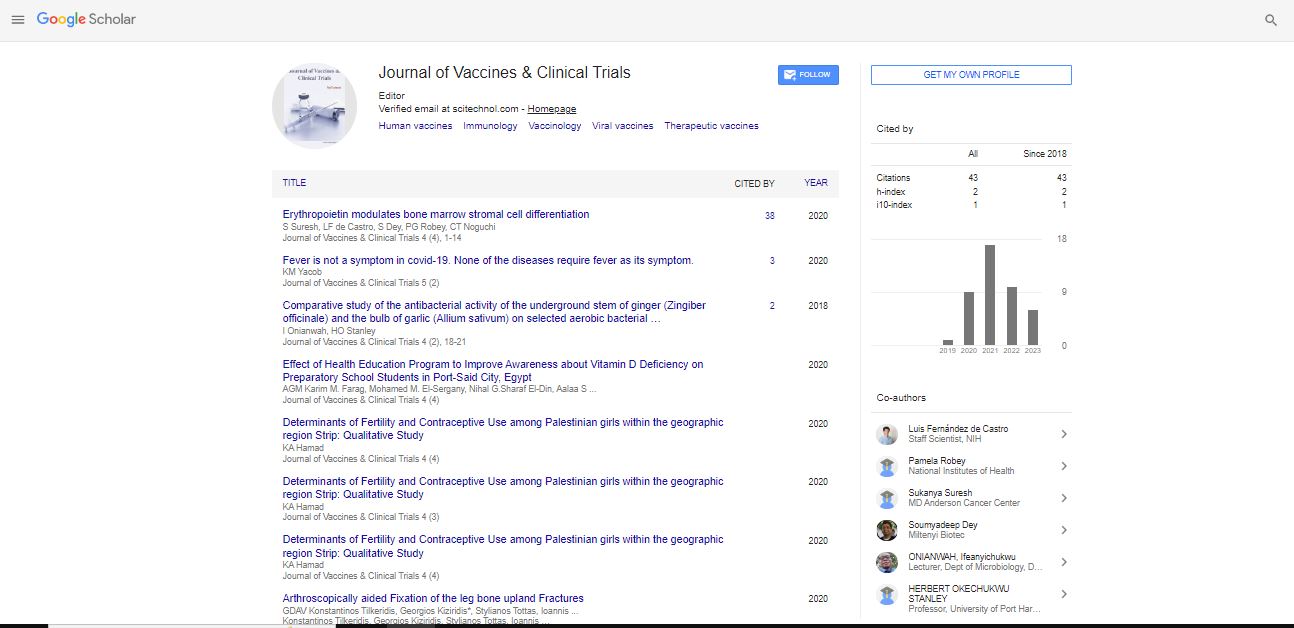A fight against exacerbating measles outbreaks – Improving the vaccine compliance via needle-free immunization
Devyani Joshi
Union University, USA
: J Vacc Clin Trials
Abstract
Measles is highly contagious disease caused by the single stranded envoloped RNA virus of Paramyxoviridae family. Currently there is a tremendous increase in the measles virus infection in the United states and this can partly be attributed to the non-compliance to the vaccine regimen. Thus there is an increased need to develop the easy to administer vaccine dosage forms which can lead to increased patient compliance. Since children are the primary recepients of the vaccine, we aimed at delivering the vaccine via needle-free routes: buccal and transdermal delivery of vaccine.
Introduction: The vaccine was formulated in microparticulate form to extend the shelf life by eliminating the requirement for cold chain facilities for storage and distribution. The buccal route was selected because the oral cavity is rich in dendritic cells similar to the Langerhans cells, type of antigen - presenting cells (APCs) and high density of T lymphocytes and mucosal associated lymphoid tissue like tonsils, salivary glands, Waldeyer’s ring and pharyngeal lymphoid tissue. The vaccine was also delivered via transdermal route as skin is an attractive site for vaccine delivery because of its many resident dendritic cells and efficient drainage to lymph nodes. The antigen will be recognized by immune cells in the oral cavity and the skin and will be processed to produce protective antibodies against the measles virus. Later, whenever the body is exposed to virus, the protective antibodies will be capable of combating the infection. The goal of this study was to explore the potential of delivery of microparticulate measles vaccine via oral dissolving films (ODF) and transdermal laser ablation and to compare the efficacy of vaccine in producing a robust immune response.
Biography
Devyani Joshi is Professor of Pharmaceutics in the College of Pharmacy at Union University. He graduated with a Ph.D. in Pharmaceutical Sciences from Mercer University, College of Pharmacy. Some of his research interests include the stability of compounded formulations, dosage forms, and drug delivery systems. This includes a broad perspective of delivering various small molecules and large molecules (e.g.,vaccines and proteins) in their most stable form to treat numerous diseases such as inflammations and cancers that have taken a significant toll on the human population.
 Spanish
Spanish  Chinese
Chinese  Russian
Russian  German
German  French
French  Japanese
Japanese  Portuguese
Portuguese  Hindi
Hindi 